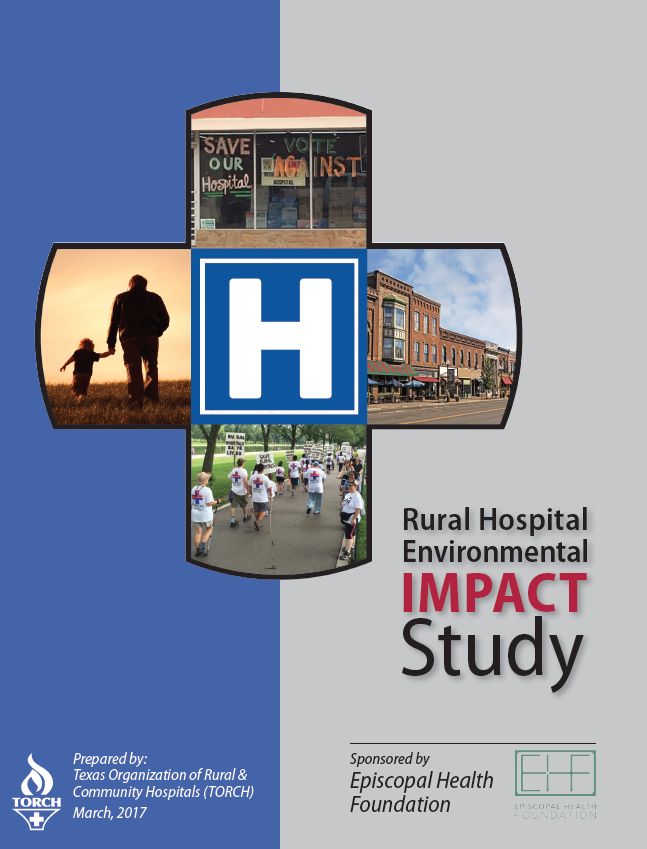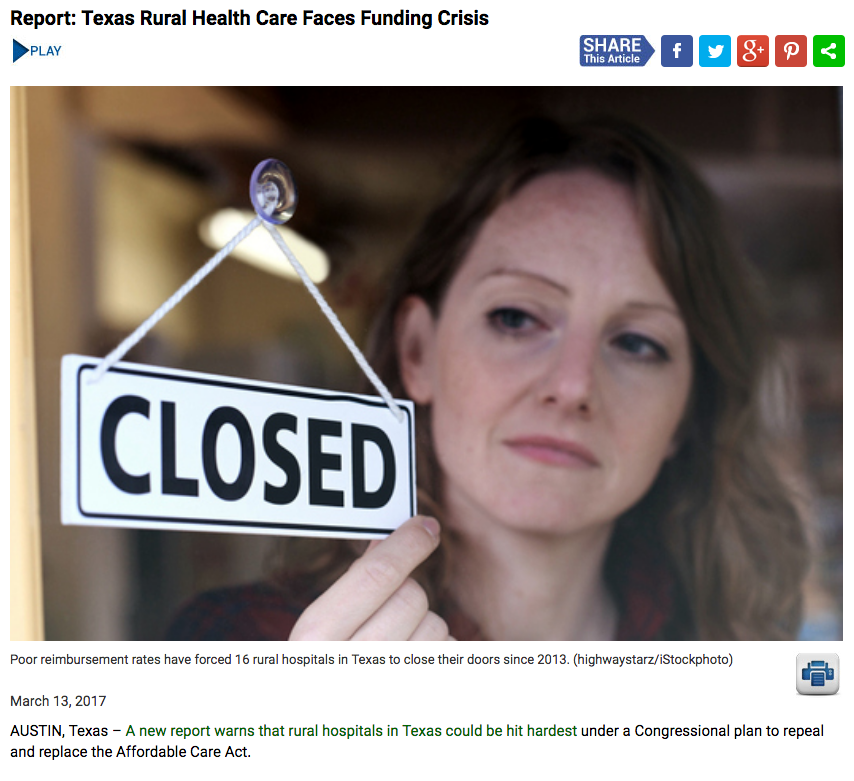
Changing demographics, rural hospital closures and uncertainly about changes to the Affordable Care Act (ACA) are all taking a damaging toll on the ability of Texas rural populations to access health services. Those are some of the findings of a new report by the Texas Organization of Rural & Community Hospitals (TORCH) examining the current crisis facing rural healthcare across the state. EHF sponsored the report.
The report found that the rural healthcare delivery system in Texas faces declining medical reimbursement rates, rising healthcare costs and closures of 16 rural hospitals since 2013. Those challenges combined with the fact that a growing number of rural residents are aging and battling chronic health conditions is creating an environment that makes it exceedingly difficult for rural populations to maintain good health, researchers say.
“Rural Texas is a great place to live and work,” said Elena Marks, EHF’s President and CEO. “We believe no matter where you live, ALL Texans deserve access to high-quality, affordable health services.”
- See news coverage of the report:
Report: Texas rural health care facing funding crisis
Despite having the highest percentage and number of uninsured residents in the nation, the enactment of the ACA in 2010 made a difference in Texas. The state lowered its uninsured rate from 25% in 2013 to 18% in 2016. Rural counties also made gains, but they continued to have higher uninsured rates than urban areas. The report found uncertainty about the ACA’s future and other health reforms leave rural communities wondering what will happen next.
“The loss of healthcare in a rural community has damaging ripple effects,” said David Pearson, President and CEO of TORCH and co-author of the report. “This is not the time to act first and think later. There are ways to deliberately amend the current legislation or to at least take the time necessary to address the replacement in a way that minimizes the disruptions to patients, providers, payers, the healthcare system and industry as a whole.”
Researchers say renegotiation of the 1115 Medicaid Demonstration Waiver is also important to maintain support of system-wide reform and healthcare delivery innovations, and keep the state Medicaid program from “collapsing.”
The report found 16 rural hospitals have closed in Texas within the last four years. Researchers say rural hospitals are more likely to serve disproportionally older, poorer, sicker and more vulnerable patient populations. In addition, the report found these hospitals also rely more heavily on income from tax subsidies and Medicaid 1115 waiver funds to stay afloat.
“The closure of a rural hospital not only jeopardizes a community’s direct access to essential medical services, it also undermines the area’s economic viability,” says Quang Ngo, TORCH’s Executive Vice President and co-author of the report. “It is incumbent upon us all to work with our elected officials and policymakers to ensure that every effort is being made to see that rural hospitals and safety net providers succeed.”
The report’s recommendations include supporting eliminating future federal payment reductions to rural hospitals, implementing rural-specific regulatory changes to better meet healthcare needs, and developing a statewide network of rural health facilities to shift to value-based healthcare instead of the current fee-for-service model.